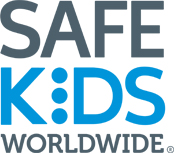A Life Too Short

Here at Safe Kids, we often hear from parents who have faced the heartbreaking loss of a child. You will want to read this story by Gordon and Julie Ross, loving parents who are eager to share their story so other parents can learn from their tragedy.
-Torine Creppy, Chief Program Officer for the United States
Julie and I met in 2000, were married in 2001, and welcomed our first son, Alec, on Valentine ’s Day 2002, followed by our second son, Liam, about a year later. Those first three years together were a joyous and wonderful time. Alec was joyful, loving, and kind. He loved his little brother, loved to play in the water, loved to dance naked, and loved music, especially Raffi.
Like most new parents, we were learning as we went, discovering how to care for our cute little boys, and spending time getting to know them. We felt very fortunate in our loving home with healthy children, knowing that others struggle for health or happiness. We learned what we could about how to be good parents. Together we worked to protect our children without being so overprotective as to deprive them of important learning experiences. We encouraged them to grow and helped foster their emerging independence. Unfortunately, we were unaware of some important dangers, and were about to receive the hardest possible lesson.
The day Alec died started like any other Tuesday. In fact, it was a beautiful, sunny, autumn day just after Labor Day weekend in 2004. We were all up early to get ready for work and get Alec and Liam fed and ready for their day. The fun we had over the long weekend was still fresh on our minds. We packed our lunches, dropped the boys off with our baby sitter, and headed to work for the day.
At the office colleagues were slowly getting back into work-mode after the long weekend, and we were sharing stories from the weekend. Then, just as lunch time approached, the phone rang. It was the baby sitter. She was nearly hysterical and said: “Alec choked on a piece of cheese. He’s unconscious. The EMTs are here. Gordon, please come quickly!” I was frantic and drove five miles to the sitter’s house as fast as I possibly could.
There at the house, the EMTs were working on Alec on the front lawn, performing CPR and trying to clear his airway. Alec did not look good. I was told to stay back, but watched with grave concern as I tried to reach Julie on her mobile. After a few minutes that seemed like hours, the EMTs loaded Alec into the ambulance and journeyed to the emergency department at the local hospital. Not long after, Julie arrived in the E.R.
At the hospital, the staff began working on Alec with the EMTs briefing, “Two and a half year old male, asphyxiated on food...” We were asked to wait in a private waiting room. The special attention, while appreciated, only added to our anxiety. We were told, “They’re working on him but it’s looking very grim.” After a while, we were brought to the treatment room. With tears in his eyes, the doctor told us they had done all they could. I crumbled to the floor sobbing. Julie stood silently in shock, trying to grasp what seemed both incomprehensible and impossible. We took turns holding Alec for a while, each reluctantly saying good-bye to our sweet little boy.
We went home without Alec that day. Walking out into the bright afternoon sun felt surreal. It took some time to absorb what happened that day, and a much longer time for us to accept his loss as our new reality.
On the day Alec died and for some time thereafter, we learned difficult lessons. They were lessons about what specifically happened in Alec’s situation and about child safety in general. Alec choked on a cheese stick: we had no idea cheese sticks were a choking hazard, but they clearly are. Cheese sticks are cylindrical in shape, much like a hot dog. They soften when eaten and are very difficult to extract after they are lodged in the throat. Pulling on them or even performing the Heimlich maneuver may not be effective because the cheese either breaks apart or is too soft to be pushed out. The sad truth is, in choking accidents where the airway is completely blocked, you don't have a very long time to react. A few minutes maybe, but not enough time to wait for first responders to arrive.
Annually, more than 10,000 children are taken to a hospital emergency room for food-choking injuries and one child dies every five days in the U.S. from choking on food. We hope that sharing our story about Alec will prevent needless food-choking accidents. Please share our story and the information below with pediatricians, health care workers, parents, grandparents, day care providers, school personnel, older children, siblings and babysitters.
Gordon and Julie Ross live in Massachusetts with their three boys: Liam, Tristan and Colin.
